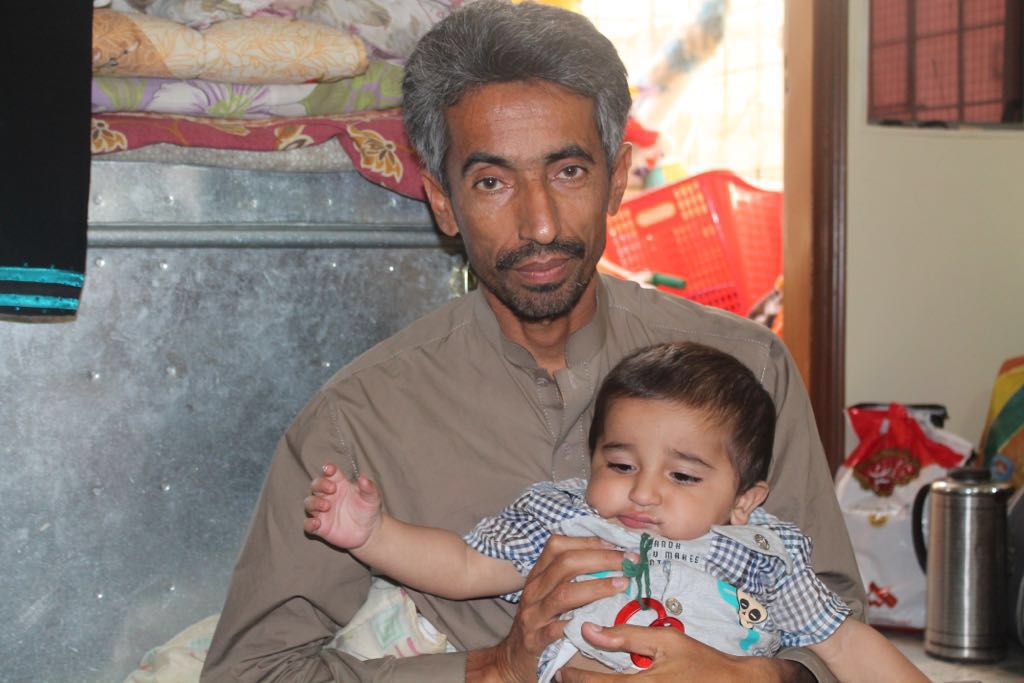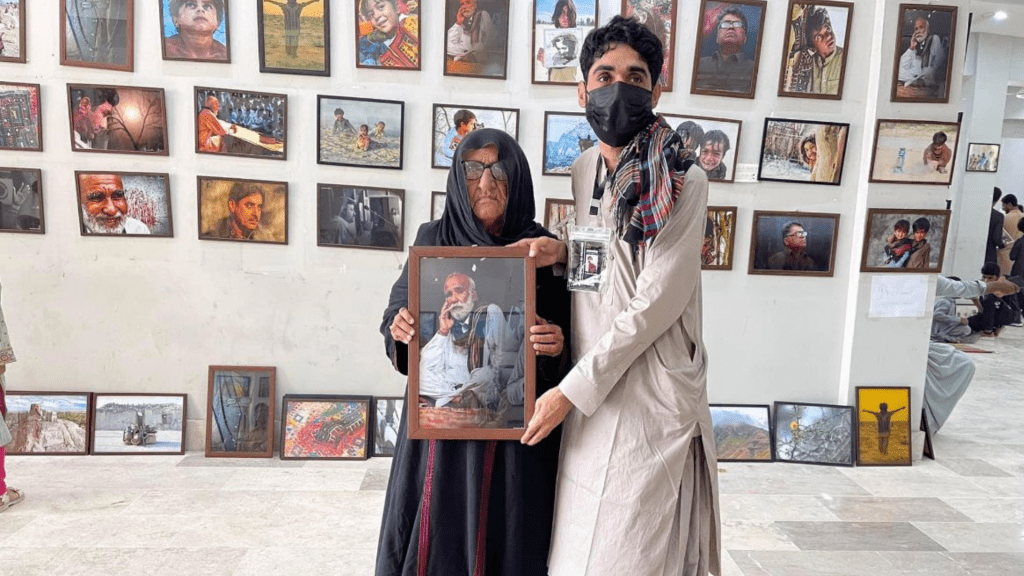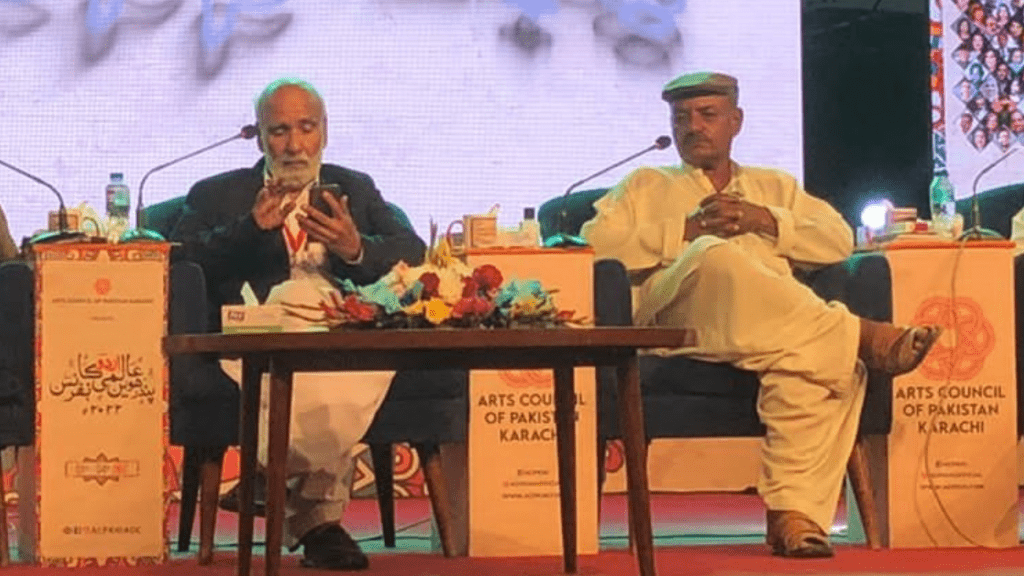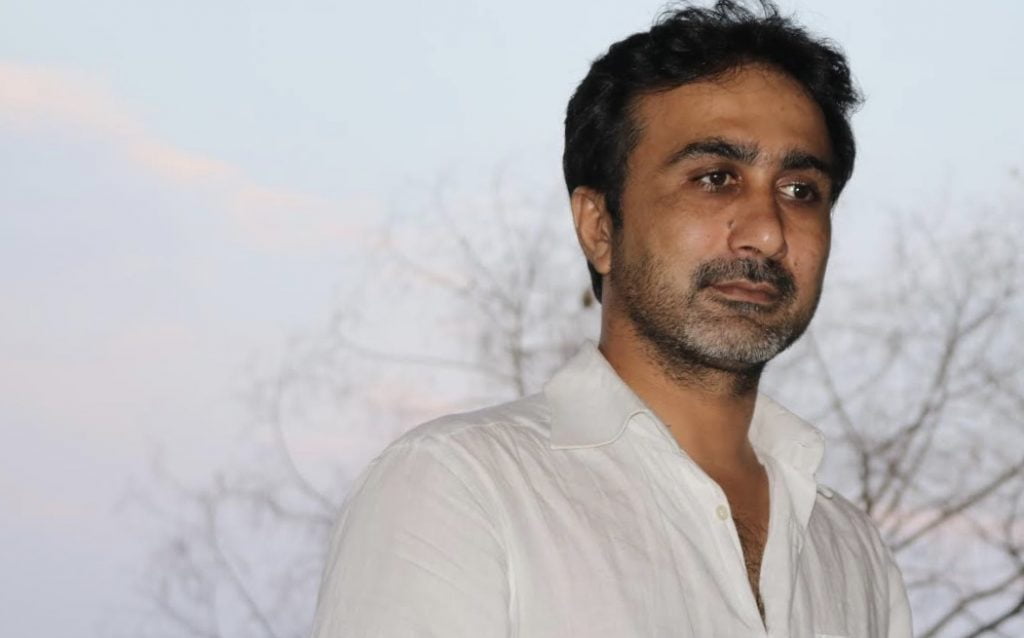Karima called me while on her way to the Pearson airport, Toronto. She was heading to Montreal for the hearing of her asylum case which had been delayed for two years. She told me she had received a call from our younger sister back home that there were unconfirmed reports about the discovery of a mutilated body which some say is our missing uncle Master Noor Ahmed’s.
A schoolteacher, our uncle was abducted on July 28, 2016, by Pakistani security forces from Turbat, Balochistan. Since then no one had heard of him. He went missing like thousands of other Baloch.
As the day progressed, we were told the body was a few days old. It had been thrown away in an isolated area and it was found days later. It was deformed beyond recognition. But when Noor Ahmad’s nephew and elder brother went to the site they confirmed it was him.
After two years of waiting, what we got was a tortured and mutilated dead body that the family members could hardly recognize.
He was the youngest of all his four siblings, including my mother who is the eldest. They were two sisters and two brothers, a perfect family.
I called my mother, whom I have not seen for the last 11 years, the same day to tell her to be strong. She is a blood pressure patient. The news of the death of her younger brother could cause great harm to her health.
She said some Pakistani paramilitary Frontier Corps (FC) officials had asked her to come to their camp and swear legion to Pakistan and give assurances of her being a true Pakistani in front of television cameras while holding a Pakistani flag. Only then she could walk away with her brother.
She told me in a voice filled with guilt that her brother was dead because of her refusal to the FC’s offer. I could hear her hushed sobs. I tried convincing her it was not her fault and that she should not blame herself. Yet, deep down, I knew she will always blame herself one way or the other, for the rest of her life. For being his elder sister, she will feel responsible in many ways for not being able to save or protect her younger brother.
It is the new normal for the Baloch people to wait for months and years, protest, go to courts and media houses, and hold press conference for the return of their missing loved ones. Those who receive their tortured, mutilated and hardly recognizable bodies are considered lucky as the tormenting wait finally comes to an end for them. They are just left with the survivor’s guilt. They will live the rest of their lives trying to figure out what they could have done to prevent their loved ones from getting killed. Signing a statement declaring their patriotism with Pakistan? Appearing in a press conference denouncing those who want a separate Baloch homeland? Or perhaps holding a Pakistani flag in front of television cameras?
All this time my uncle was missing I never thought for a moment he would be killed by his captors. He was the kindest person you will ever come across. Even the death of his mother’s domestic animals would upset him so much that he would not be able to hide the pain. The kind of a person who can harm no one.
He often went with his friends to mountain ranches for picnic. Balochistan is a land of mountains. There is a joke that if you force a Baloch to live on plain lands for long, he would feel the earth turning upside down. The Baloch believe it is the mountains that hold the earth on its place like giant nails.
So, like any other Baloch, my uncle would not miss a chance to go to the mountains, be it a picnic or a hunting trip. But whenever he went he took along bundles of medicines for some of the most common ailments, like paracetamol and anti-malarial drugs. And sugar too.
When asked, he would tell us there were nomads living in the mountains who survived in complete isolation just with their goat herds.
“Sugar and flour are luxuries for them. So every time I go there I take for them these medicines and sugar. You should see the happiness on their faces. Especially the kids. They love sugar,” he said.
These nomads, who lived without hospitals, schools and other basic facilities of life, for years now face new problems. They are forced to migrate every now and then, whenever the army prepares for a military operation to chase separatist militants in the mountains. Worse, they get their villages burnt or bombarded by the military so that the Baloch guerillas lose a potential hideout.
These nomads should not miss Master Noor Ahmad as his medicines and sugar would have brought little joy for them in these new circumstances.
Like me, my aunt also cannot believe how someone could kill her kind and loving brother.
I called her the other day to share her grief. I have been doing this for quite some time now. For the last eleven years, I have been calling my relatives and friends from my self-imposed exile to tell them to be strong whenever their loved ones went missing or their bodies were found.
I did the same again the other day. I called my aunt to tell her to be strong. Keeping in mind her unshakable belief in God and Islam, I hoped she might find consolation through some religious explanation of the tragedy that had struck our family. I told her whoever had done it to our beloved uncle could not escape from God’s justice. I also told her that oppressors had always been punished and the oppressed favoured by God throughout history. I went as far as citing the story of Karbala.
“How can a God so kind can let this happen to a kind and gentle person like Master?” she responded. “He would share his food with hungry animals. He would come to my house and ask me if I had any leftover food so that he could give to a passing stranger. “How can God allow this?” she continued as I listened in disbelief. “They burnt him with a pressing iron. Every inch of his body bears a wound. There is nothing left of my brother except for a faceless, eyeless, toeless body. Is this God’s justice?”
It was the first time I was hearing her questioning God’s justice. She usually worried about my afterlife for lacking faith. Here she was having doubts about her own faith, courtesy Pakistan army.
The Islamic Republic of Pakistan has made us doubt everything we once held dear. Even our faith. The very foundation of our psyche has been shaken by this continuous bloodshed.
The very night I had this conversation with my aunt, I had a nightmare that my two-and-half-year old son is drowning. This sense of dread and insecurity has become part of the collective Baloch psyche. Who can live with the peace of mind when anyone’s father or brother or son, healthy and physically fit, can just go missing and turn up dead? Not just dead, but their bodies bearing evidence as if some sick followers of a cult had performed some sadistic ritual on them.
All of this done by a state which is part of the international community and a signatory to most of the human rights treaties. When we tell our story to the people outside Balochistan they give us a look as if it is too gruesome to be true. Perhaps, no one wants to believe that their fellow human beings are capable of such barbarity. In fact, the level of state brutality in Balochistan is far worse than we can tell in words.
Once I asked a Baloch torture victim to give me an interview to share every minute detail of what had happened to him in custody. He refused. Not out of fear, but out of shame.
“You can’t imagine what the army of the Islamic Republic of Pakistan is capable of doing,” he said. “No torture victim will tell you the complete story. They don’t want to admit the indignity the face at the hands of Pakistan army. They even deny it to themselves.”
Although considered a blessed child by my grandmother, Master Noor Ahmad was not lucky enough to be able to come out of the torture cells and tell us half the truth about his ordeal.
My grandmother was known for pampering her children. It was not without reason. She had lost six children in infancy. Master Noor Ahmad was among the lucky four to survive infancy out of the 10 children.
Balochistan has one of the highest child mortality rates in the world and it seems on its way to secure a position for having one of the highest adult mortality rates. The worst thing is we cannot do anything about it.
When I told my mother on the phone to be strong, she replied: “I’m strong, don’t worry about me. I will not show my tears to anyone. But I can’t help that everything reminds me of him. One can do nothing about the memories.”
I do not know what to say to her or any other Baloch family who has lost their loved ones at the hands of a state which is not accountable to anyone, but only to our collective memory.
We cannot do anything else, but remember.
Sameer Mehrab is a writer and co-founder of Balochistan Times. He often depicts Balochistan's socio-political dilemmas in his fiction and poetry. He is based in Canada.



